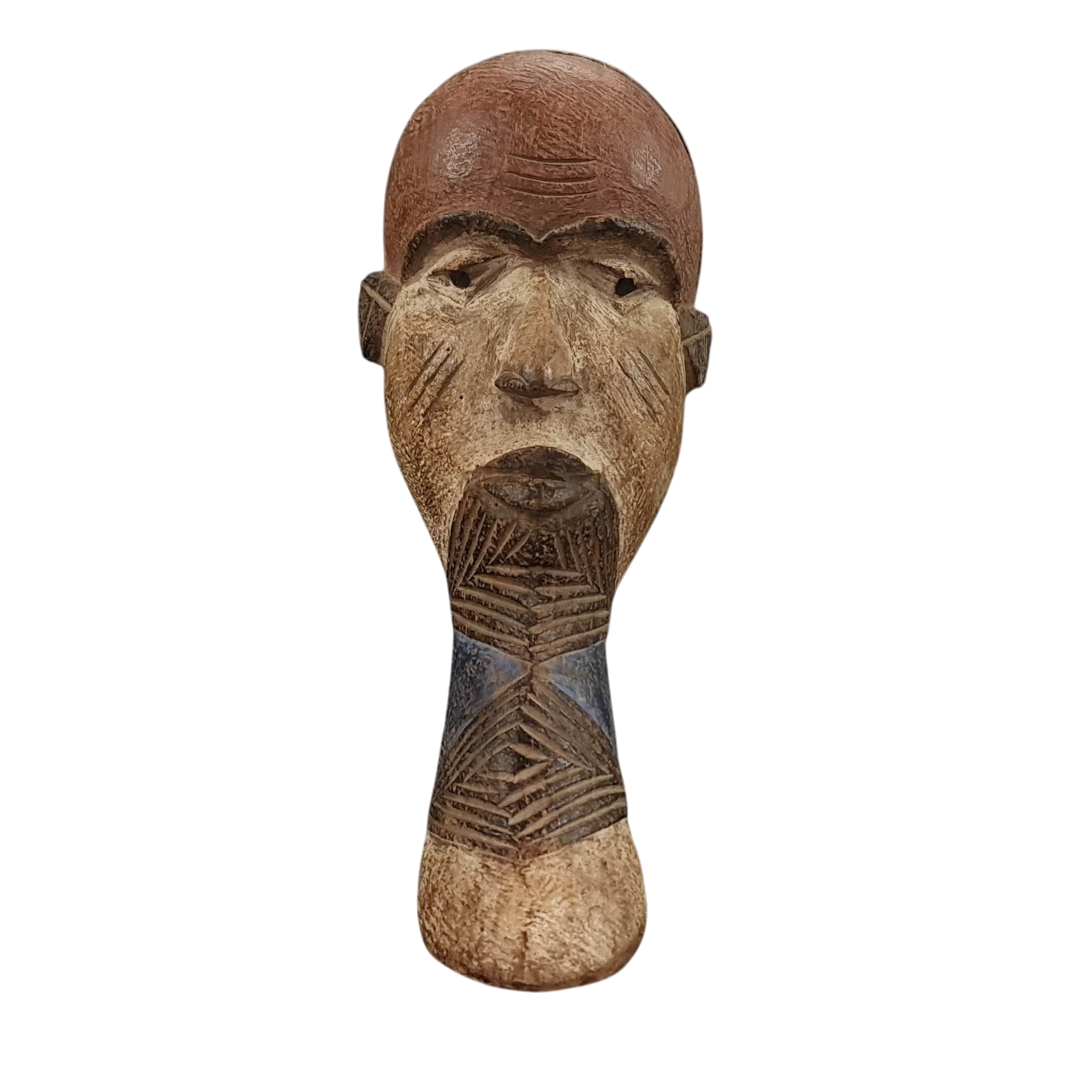The Songye people are an ethnic group primarily located in the southeastern part of the Democratic Republic of the Congo (DRC), particularly in the regions of Katanga and Maniema. They are known for their rich cultural heritage, intricate artistic traditions, and complex social structures. Here’s an overview of the Songye people, their culture, and their significance:
Cultural Overview
-
Language:
- The Songye speak the Songye language, which belongs to the Bantu family of languages. It is widely spoken in their region and serves as a vital medium for cultural expression and communication.
-
Social Structure:
- The Songye society is traditionally organized around clans and families. Social hierarchy can be observed, with leaders often referred to as "Bashungwa", who are responsible for making decisions and maintaining order in the community.
-
Economy:
- The Songye are primarily engaged in agriculture, growing crops such as cassava, maize, and beans. They also participate in hunting and fishing, which play important roles in their subsistence and culture.
Artistic Traditions
-
Masks:
- The Songye are particularly renowned for their Kifwebe masks, which are used in various rituals and ceremonies. These masks are symbolic representations of spirits or ancestors and play an essential role in social and cultural life. Kifwebe masks are characterized by their striking geometric patterns and vibrant colors, typically in black, white, and red.
-
Sculpture:
- In addition to masks, the Songye are skilled in wood carving and create various forms of art, including figurines and other decorative items that reflect their beliefs and social values.
Beliefs and Spirituality
-
Religion:
- The Songye people's spiritual beliefs are a blend of traditional animism and influences from Christianity. They believe in a spiritual world inhabited by ancestors and other spirits that interact with the living. Rituals and ceremonies are performed to honor these spirits and seek their protection and guidance.
-
Secret Societies:
- The Bwadi Bwa Kifwebe is one of the most notable secret societies among the Songye. This society plays a crucial role in maintaining social order, conducting initiation rites, and enforcing communal norms.
Historical Context
-
Historical Kingdom:
- Historically, the Songye were part of a powerful kingdom known as the Songye Kingdom, which existed before colonial rule. They engaged in trade with neighboring peoples and were known for their skilled craftsmanship.
-
Colonial Impact:
- The colonial period brought significant changes to the Songye way of life, including the imposition of new political structures and the introduction of Christianity. Despite these changes, many traditional practices and beliefs have persisted.
Contemporary Issues
-
Cultural Preservation:
- Today, the Songye people face challenges in preserving their cultural identity amid globalization and modernization. Efforts are being made to keep their traditions alive through art, festivals, and education.
-
Political and Social Challenges:
- The DRC has faced political instability and conflict, which have impacted the Songye community. Issues such as land disputes and resource management continue to affect their livelihoods and social structures.
Conclusion
The Songye people are a vibrant ethnic group with a rich cultural heritage that is expressed through their art, traditions, and social practices. Their resilience in maintaining their identity and traditions in the face of historical and contemporary challenges speaks to the strength of their community and cultural significance in the Democratic Republic of the Congo.
